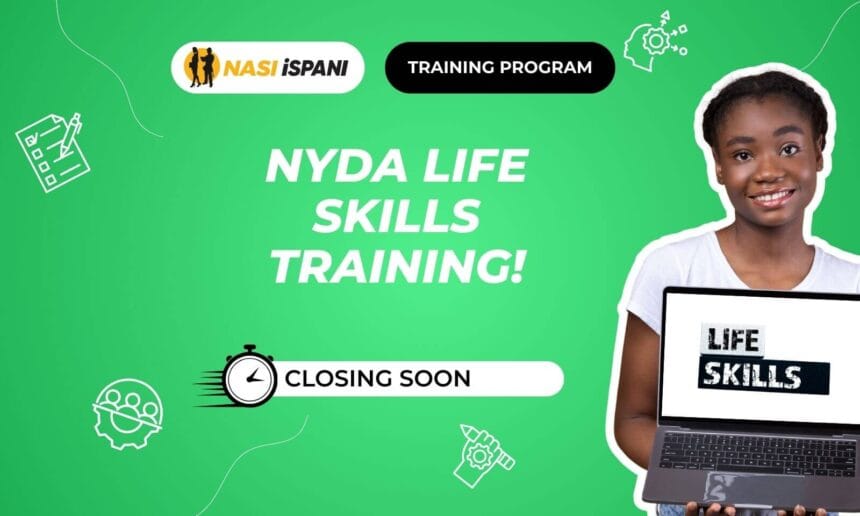Every day life is changing fast in South Africa — technology, work, education, even how we communicate. Young people especially face pressure: unemployment, frustration, the need to adapt. That’s where NYDA Life Skills Training steps in. It’s a programme offered by the National Youth Development Agency (NYDA) that helps youth build the soft skills and resilience needed to thrive.
What Is NYDA Life Skills Training?
NYDA’s Life Skills Training is a programme designed for young people between 18 and 35 years old. It’s not strictly academic — instead it focuses on personal development, communication, decision‑making, adaptability, and other “life‑skills” that help in work, relationships, and daily living.
Some of the things covered in the training include:
- Understanding who you are (identity, self‑confidence)
- Goal setting and planning / managing time
- Communication skills (how to speak, how to listen)
- Problem solving & creative thinking — thinking differently, working through challenges
- Dealing with conflict, stress and frustration
- Understanding the world of work — what employers expect, how to work in a team, being responsible
Objectives of the Training
Why does NYDA run this programme? Some of the main aims are:
- Empowerment — giving youth the information, capacity, and awareness to make good decisions.
- Applied life skills — skills relevant to a changing society, not just theory.
- Active citizenship — preparing young people to participate socially and economically, not to feel left out.
- Decision‑making & adaptability — being able to face new challenges, changing jobs, dealing with change and uncertainty.
Eligibility
- Must be a South African youth, often between 18‑35 years old.
- Unemployed or looking to build skills / employability.
- Willing to attend the training, be involved in modules, take part in exercises. Basically, you must commit.
How to Access the Programme
If you’re interested in NYDA Life Skills Training, here’s how to get involved:
- You can walk in at any NYDA branch or district office to ask about the programme.
- You can also register online on the NYDA ERP Portal.
- It’s free — you don’t need to pay to take part.
- If you plan to start a business, you’ll be required to go through life skills training first.
Also check: Gauteng College of Nursing 2026 Intake Now Open
How to Apply
- Visit the NYDA website or call their toll‑free line: 0800 58 58 58 if you’re unsure where to start.
- Go to your nearest NYDA branch or district office to enquire in person.
- Register online via the NYDA ERP Portal.
- Attend the Life Skills Training sessions when scheduled. Be present, be engaged.
- After finishing, look out for other NYDA opportunities (learnerships, internships, etc.) where you can use what you have learned.
Benefits
Participating in NYDA Life Skills Training gives many benefits, both for the individual and for the wider society.
For You (Individual Benefits)
- Greater self‑awareness and confidence: knowing how you work, what your strengths are.
- Improved ability to think critically, make decisions, solve problems.
- Handling stress, conflict, frustration better.
- Better social skills: teamwork, communication, working with others.
- Understanding what employers want, being more ready for work.
For Employment
- Helps bridge the gap between what school teaches and what the workplace needs. Employers often expect more than just qualifications — they want someone who can solve problems, adapt, communicate, and work in a team.
- More likely to maintain jobs (or adapt to changing job demands) because of the soft skills and flexibility built through the programme.
For Society
- When young people are more confident, productive, and engaged, society benefits: less conflict, better community cooperation.
- Encourages responsible citizenship: respect for diversity, understanding others, empathy.
- Helps reduce social problems that come with youth unemployment and disempowerment.
The NYDA Life Skills Training is more than just a workshop or a course. It’s a stepping stone — helping young South Africans not only survive daily challenges but to grow, to lead, to participate. For youth who want to make a difference in their own lives, in their families, and in society, this is an opportunity worth using.
